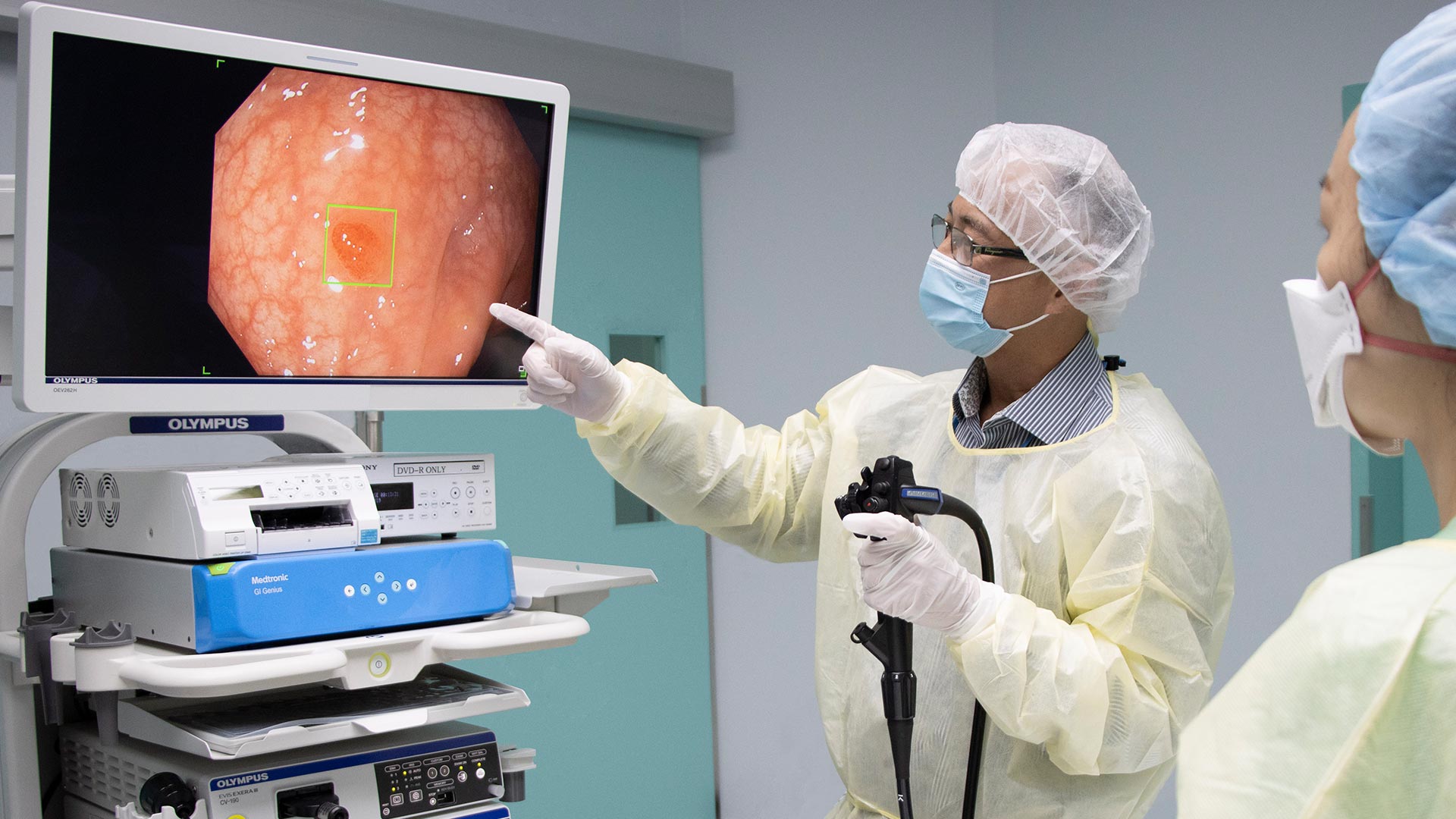
A colonoscopy is a perfect way to investigate any suspicious bowel issues and determine the cause. A flexible tube with a camera attached is delicately inserted into your bottom, but don’t worry – you’ll be given a laxative beforehand to make sure everything’s emptied out! You won’t need to go under for this test, as it can be done while you’re awake; we also have comfortable medicines available if needed.
In Thailand, pioneering hospitals such as Samitivej Hospital, Medpark Hospital, and Vejthani Hospital are utilizing AI technology during colonoscopy procedures for maximum accuracy when detecting polyps. By leveraging this cutting-edge technique, even the tiniest or most discreet of polyps can be accurately identified and addressed by medical professionals – vastly improving detection capabilities in comparison to traditional methods alone.
Furthermore, Artificial Intelligence (AI) could also be utilized to decrease colonoscopy procedure times and provide doctors with an extra set of eyes when searching for polyps in the patient’s colon. This would permit the immediate removal of any detected polyps during a single colonoscopy visit; thus avoiding hospital stays or operations that would have otherwise been necessary for those patients. Japan has developed a technique that doubles detection accuracy and improves exam quality – making it the go-to gold standard when it comes to detecting colorectal cancer.
Why it’s done
Uncovering the Source
Performing a colonoscopy is often the best way to diagnose and uncover what’s causing common bowel symptoms, such as rectal bleeding or diarrhea. Additionally, it can be useful in determining if there’s an underlying cause for dramatic weight loss, fatigue without explanation, or constipation that doesn’t clear up with traditional treatment methods. Though most tests won’t reveal anything concerning when something unexpected is found during the procedure further testing may be necessary.
To check for growths in your bowels (polyps)
Lots of people have growths in their bowels (bowel polyps), and most of the time they’re harmless. But they can sometimes become cancer, so if they’re found, they need to be checked. They can be removed during the colonoscopy and tested. Your results will tell you if you need any further tests or treatment. To look for signs of bowel conditions A colonoscopy can be used to look for bowel conditions like
Crohn’s disease
diverticular disease or diverticulitis
ulcerative colitis
bowel cancer
These conditions can be hard to diagnose, so you may also have other tests.
Getting ready for a colonoscopy
2 days before
For two days before a colonoscopy, you should only eat plain foods like:
- plain chicken not in a sauce
- white rice, pasta, or bread
- clear soup
1 day before
The day before your colonoscopy, you’ll need to drink sachets of laxatives to empty your bowels for the test. Most people:
- need to drink a few sachets
- need to drink the sachets at different points throughout the day
- get diarrhea a few hours after taking the first sachet
Stay at home and be near a toilet after you’ve started drinking the laxatives.
What happens on the day
On the day of your colonoscopy, you’ll need to stop eating and drinking.
You should also bring any medicines you take with you.
When you arrive
You’ll speak with a nurse about what’s going to happen. They will ask you to change into a hospital gown. You may be offered things to make you more comfortable and make the test easier, such as:
- painkillers
- sedation – medicine is given through a small tube in your arm to help you relax
- gas and air – you breathe this in to help you relax
Not all hospitals offer all these things; ask about what you can have.
The colonoscopy procedure
It should take 30 to 45 minutes to have your colonoscopy. But you might be at the hospital for around 2 hours from getting there to going home.
After your colonoscopy is finished, you’ll usually be told if any growths (polyps) have been removed. You’ll then be moved to the recovery room. The nurses will monitor you until you’re ready to go home.
How you might feel after a colonoscopy
You might feel bloated or have stomach cramps for 2 to 3 hours after a colonoscopy. You may also have some blood in your poop or have been bleeding from your bottom for a couple of days. These things are expected.
To book an appointment via MedEx for colonoscopies, contact us at Whatsapp or Viber or Line – +66 658 690 684.



